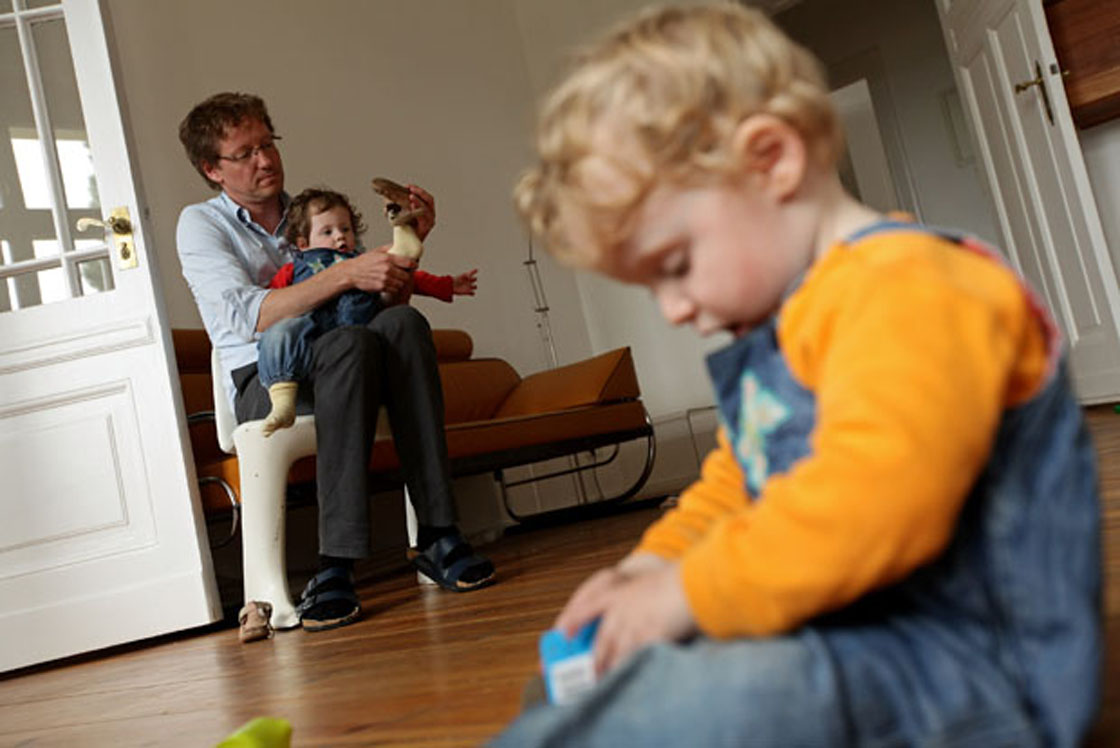As a researcher in contemporary fatherhood, you might imagine Paul Hodkinson would glean the most information on the subject by watching fathers with their children in parks and playgrounds. In fact, it was away from work, during the U.K. sociologist’s own recent parental leave, that he made some telling observations.

The father-of-two is planning research into the factors that allow men to become primary or equal partners in caring for babies or young children.
He pinpoints several factors that would encourage more men to take parental leave.
Benefits
Hodkinson says studies have shown two factors tend to determine whether fathers will take parental leave.
“One is the money issue – so providing a more generous benefits package for people who are on parental leave, and the second is having a quota of the leave period, which is for the father only.”
Some Scandinavian countries have adopted so-called “daddy quotas”. Sweden, for example, offers two months of father-specific parental leave. Fathers have until the child is eight years old to use the government benefits.
Gender Expectations
Hodkinson says mothers are often portrayed as the primary parent in everything from parenting books and manuals to advertising for baby products. That has an impact on what society perceives as normal.
“Gender expectations in relation to parenthood are particularly strong in early years (of) parenting and for babies and young toddlers, where there’s such a strong emphasis on the bond between mother and baby, rightly so you could argue in some respects,” Hodkinson says. “But that does have a sort of knock-on effect.”
He says minor changes could create a more inclusive culture around parenting.
Hodkinson suggests calling mother-baby classes “parent and baby sessions” and ensure all literature reflects that.
Work Culture
“Would it be interpreted as a sort of lack of ambition or drive in your work if you decide that you want to take a significant period of time out – six months or so – to look after your children?” Hodkinson asks. “Even if there was an official acceptance of it, would it still sort of create an impression or would people feel that it might create an impression that would be detrimental to them?”
Hodkinson is planning research into the factors that allow men to become primary or equal partners in caring for babies or young children. He hopes to use his findings to recommend ways to “make it normal” for men to have more comparable roles in raising young children.



Comments